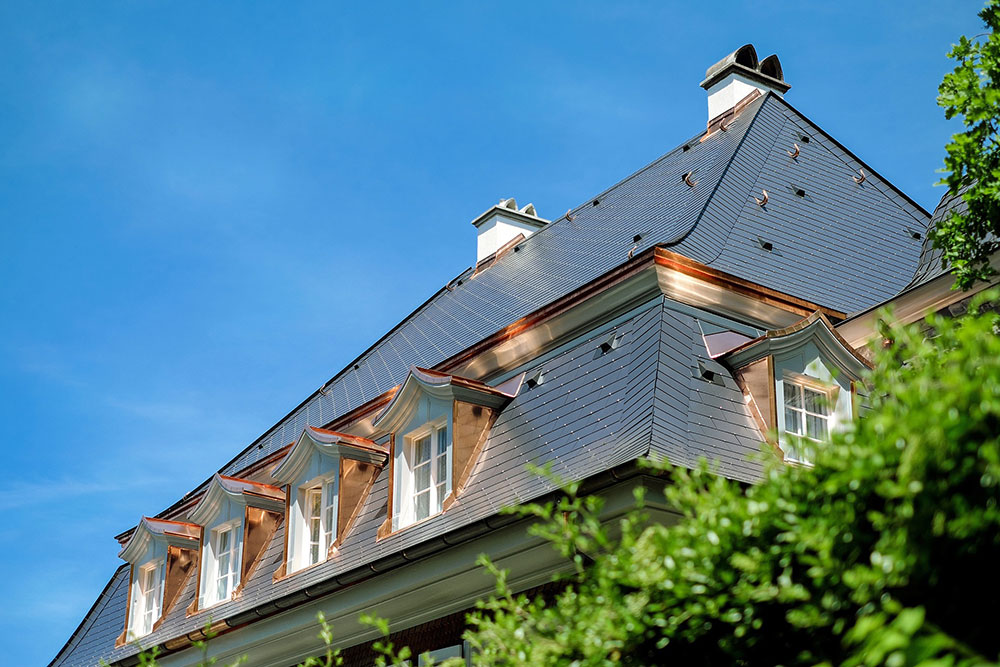A roofing material that doesn’t cost much, lasts for decades, and is completely recyclable sounds like a good material. Wouldn’t you say? Out of all parts of your house that need repairs or redesigns, your roof will probably suffer the brunt of both the tooth of time, as well as environmental damages. So, one of the most important things to take into consideration is how well your roof will be able to put up with whatever Mother Nature plans to throw at it. In this article, we’ll talk about the recyclable materials you can use to make your roofing more durable, stronger, or impervious to moisture. And last but not least – totally recyclable. Without further ado, let’s see what these roofing options are.
Clay Tile Roofs
Although clay cannot really be described as recyclable per se, there’s so much of it around that the manufacturers claim these to be entirely sustainable. Clay is a material that will sit quite heavy on your roofing structure, so you need to ensure the thing is sound and stable before you proceed with installing it. If you’re not really sure about how you should approach this part of the job, you might want to hire the help of some roofing professionals. You can ask them all kind of questions about roofing and they’ll readily come back with an educated answer.
Metal Roofing
One of the safest bets in the world of roofing are the metal roofs. These structures will be able to survive rain, hail, snow, frogs falling from the sky, you name it! Metal roofs are also relatively easy to install. Also, at the end of their life cycle, you can sell them as scrap metal and get a certain amount of money as a return for your initial investment. For the record, the best metals for roofing purposes include:
- Copper
- Zinc
- Steel
- Aluminum.
The thing about metals is that, once you install them as your roof, you can rest assured the darn thing will still be there decades later. About the only additional investment you’d probably have to make in this case would be some heat insulation. As you know, in the famous play title ‘Cat on A Hot Tin Roof’ – the cat is NOT having a fun time. Nor are the folks underneath the roof, unless the fan is on. Anyway, if you happen to fancy copper, you can contact copper roof experts, who will help you figure out all the details of this job.
Advantages of copper roofing
It’s not merely a coincidence that so many people go for copper, by the way. This versatile material fares exceptionally well against heat, mildew, hail, and even fire. Also, copper roofs will reach the ripe ole age of 50 or more before they need to be replaced. Last but not least, copper is considered a relatively lightweight metal. In other words, you won’t have to invest in additional reinforcements to the frame in order to make it stand securely in its place.
Asphalt Shingles
Even though asphalt wouldn’t necessarily be the first material you’d think of when it comes to roofing structures, it is actually used in one of its variety for this exact purpose! Of course, asphalt shingles aren’t made of the same material which is routinely used for making roads. The latter would be way too heavy to stick on top of your roof supporting beams. Instead, a lighter, more of a composite mix is used. That gives the roof an excellent heat reflectivity, as well as durability properties.
Namely, most manufacturers use a mix of:
- Paper
- Minerals
- Fiberglass
- And a fair amount of tar and petroleum.
Conclusion
All in all, the options for your roofing materials abound, but the sustainable and recyclable ones are often particularly difficult to find. (But once you do, you’re good to go.) Best of luck with your roofing ventures!
Ron Wolf
Related posts
1 Comment
Leave a Reply Cancel reply
This site uses Akismet to reduce spam. Learn how your comment data is processed.





[…] prevent any significant damage, try to inspect your roof periodically. Depending on the roofing material , it’s best to do it at least twice a year, in spring and fall, or after a big storm. There is no […]